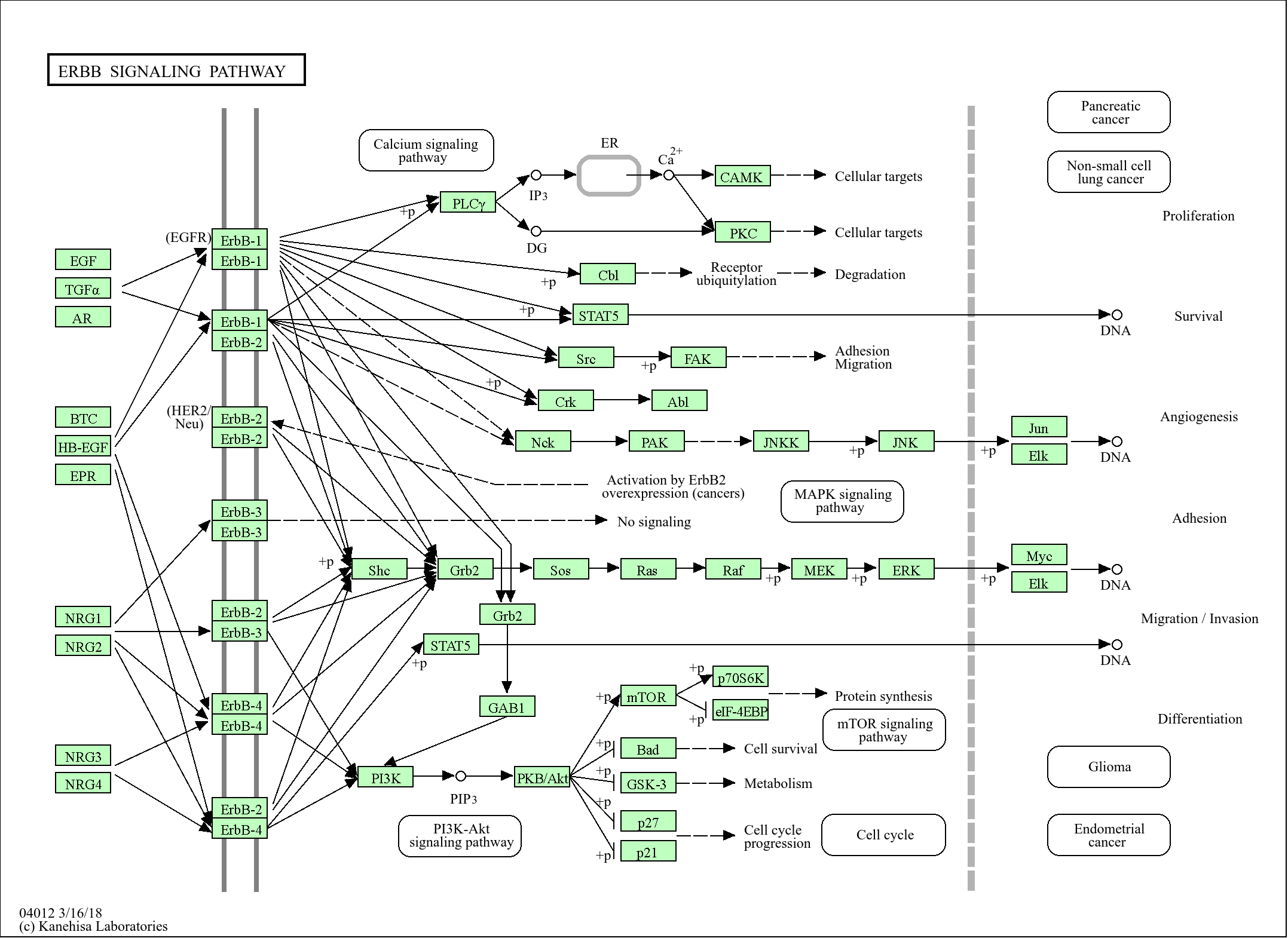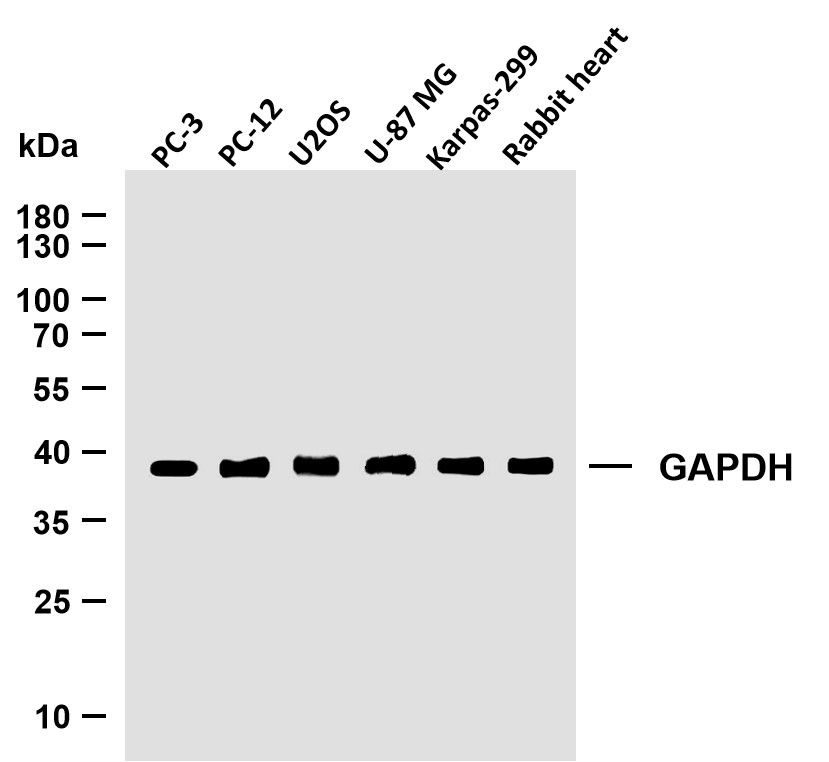
Catalog: YM8667
Size
Price
Status
Qty.
200μL
$600.00
3 weeks
0
100μL
$340.00
3 weeks
0
40μL
$190.00
3 weeks
0
Add to cart


Collected


Collect
Main Information
Target
mTOR
Host Species
Rabbit
Reactivity
Human, Mouse, Rat
Applications
WB, IF, IP, ELISA
MW
289kD (Calculated)
289kD (Observed)
Conjugate/Modification
Phospho
Detailed Information
Recommended Dilution Ratio
WB 1:2000-1:10000; IF 1:200-1:1000; ELISA 1:5000-1:20000; IP 1:50-1:200;
Formulation
PBS, 50% glycerol, 0.05% Proclin 300, 0.05%BSA
Specificity
Phospho-mTOR (S2481) Antibody detects endogenous levels of mTOR protein only when phosphorylated at S2481.The name of modified sites may be influenced by many factors, such as species (the modified site was not originally found in human samples) and the change of protein sequence (the previous protein sequence is incomplete, and the protein sequence may be prolonged with the development of protein sequencing technology). When naming, we will use the "numbers" in historical reference to keep the sites consistent with the reports. The antibody binds to the following modification sequence (lowercase letters are modification sites):IHsFI
Purification
Protein A
Storage
-15°C to -25°C/1 year(Do not lower than -25°C)
MW(Calculated)
289kD
MW(Observed)
289kD
Modification
Phospho
Clonality
Monoclonal
Clone Number
PT0898R
Isotype
IgG,Kappa
Related Products
Antigen&Target Information
Specificity:
Phospho-mTOR (S2481) Antibody detects endogenous levels of mTOR protein only when phosphorylated at S2481.The name of modified sites may be influenced by many factors, such as species (the modified site was not originally found in human samples) and the change of protein sequence (the previous protein sequence is incomplete, and the protein sequence may be prolonged with the development of protein sequencing technology). When naming, we will use the "numbers" in historical reference to keep the sites consistent with the reports. The antibody binds to the following modification sequence (lowercase letters are modification sites):IHsFI
show all
Gene Name:
MTOR
show all
Protein Name:
Serine/threonine-protein kinase mTOR
show all
Other Name:
MTOR ;
FRAP ;
FRAP1 ;
FRAP2 ;
RAFT1 ;
RAPT1 ;
Serine/threonine-protein kinase mTOR ;
FK506-binding protein 12-rapamycin complex-associated protein 1 ;
FKBP12-rapamycin complex-associated protein ;
Mammalian target of rapamycin ;
mTOR ;
Mechanistic tar
FRAP ;
FRAP1 ;
FRAP2 ;
RAFT1 ;
RAPT1 ;
Serine/threonine-protein kinase mTOR ;
FK506-binding protein 12-rapamycin complex-associated protein 1 ;
FKBP12-rapamycin complex-associated protein ;
Mammalian target of rapamycin ;
mTOR ;
Mechanistic tar
show all
Database Link:
Background:
The protein encoded by this gene belongs to a family of phosphatidylinositol kinase-related kinases. These kinases mediate cellular responses to stresses such as DNA damage and nutrient deprivation. This protein acts as the target for the cell-cycle arrest and immunosuppressive effects of the FKBP12-rapamycin complex. The ANGPTL7 gene is located in an intron of this gene. [provided by RefSeq, Sep 2008],
show all
Function:
Function:Acts as the target for the cell-cycle arrest and immunosuppressive effects of the FKBP12-rapamycin complex. Part of the TORC2 complex which plays a critical role in AKT1 Ser-473 phosphorylation, and may modulate the phosphorylation of PKCA and regulate actin cytoskeleton organization.,similarity:Belongs to the PI3/PI4-kinase family.,similarity:Contains 1 FAT domain.,similarity:Contains 1 FATC domain.,similarity:Contains 1 PI3K/PI4K domain.,similarity:Contains 7 HEAT repeats.,subunit:Interacts with the FKBP12-rapamycin complex. Binds UBQLN1. Forms part of the mammalian target of rapamycin 2 complex (TORC2) comprised of FRAP1, GBL, PRR5, RICTOR and SIN. TORC2 does not bind to and is not sensitive to FKBP12-rapamycin. Binds directly to PRR5 and RICTOR within the TORC2 complex.,tissue specificity:Expressed in numerous tissues, with highest levels in testis.,
show all
Cellular Localization:
Endoplasmic reticulum membrane ; Peripheral membrane protein ; Cytoplasmic side . Golgi apparatus membrane ; Peripheral membrane protein ; Cytoplasmic side . Mitochondrion outer membrane ; Peripheral membrane protein ; Cytoplasmic side . Lysosome . Cytoplasm . Nucleus, PML body . Microsome membrane . Lysosome membrane . Cytoplasmic vesicle, phagosome . Shuttles between cytoplasm and nucleus. Accumulates in the nucleus in response to hypoxia (By similarity). Targeting to lysosomes depends on amino acid availability and RRAGA and RRAGB (PubMed:18497260, PubMed:20381137). Lysosome targeting also depends on interaction with MEAK7. Translocates to the lysosome membrane in the presence of TM4SF5 (PubMed:30956113). .
show all
Tissue Expression:
Expressed in numerous tissues, with highest levels in testis.
show all
Research Areas:
>>EGFR tyrosine kinase inhibitor resistance ;
>>Endocrine resistance ;
>>ErbB signaling pathway ;
>>HIF-1 signaling pathway ;
>>Phospholipase D signaling pathway ;
>>Autophagy - other ;
>>Autophagy - animal ;
>>mTOR signaling pathway ;
>>PI3K-Akt signaling pathway ;
>>AMPK signaling pathway ;
>>Longevity regulating pathway ;
>>Longevity regulating pathway - multiple species ;
>>Cellular senescence ;
>>Apelin signaling pathway ;
>>Neutrophil extracellular trap formation ;
>>JAK-STAT signaling pathway ;
>>Th17 cell differentiation ;
>>Thermogenesis ;
>>Insulin signaling pathway ;
>>Thyroid hormone signaling pathway ;
>>Adipocytokine signaling pathway ;
>>Type II diabetes mellitus ;
>>Insulin resistance ;
>>Growth hormone synthesis, secretion and action ;
>>Alzheimer disease ;
>>Amyotrophic lateral sclerosis ;
>>Huntington disease ;
>>Spinocerebellar ataxia ;
>>Pathways of neurodegeneration - multiple diseases ;
>>Shigellosis ;
>>Human cytomegalovirus infection ;
>>Human papillomavirus infection ;
>>Kaposi sarcoma-associated herpesvirus infection ;
>>Herpes simplex virus 1 infection ;
>>Human immunodeficiency virus 1 infection ;
>>Pathways in cancer ;
>>Proteoglycans in cancer ;
>>MicroRNAs in cancer ;
>>Chemical carcinogenesis - receptor activation ;
>>Colorectal cancer ;
>>Pancreatic cancer ;
>>Glioma ;
>>Prostate cancer ;
>>Acute myeloid leukemia ;
>>Breast cancer ;
>>Hepatocellular carcinoma ;
>>Gastric cancer ;
>>Central carbon metabolism in cancer ;
>>Choline metabolism in cancer ;
>>PD-L1 expression and PD-1 checkpoint pathway in cancer ;
>>Diabetic cardiomyopathy
>>Endocrine resistance ;
>>ErbB signaling pathway ;
>>HIF-1 signaling pathway ;
>>Phospholipase D signaling pathway ;
>>Autophagy - other ;
>>Autophagy - animal ;
>>mTOR signaling pathway ;
>>PI3K-Akt signaling pathway ;
>>AMPK signaling pathway ;
>>Longevity regulating pathway ;
>>Longevity regulating pathway - multiple species ;
>>Cellular senescence ;
>>Apelin signaling pathway ;
>>Neutrophil extracellular trap formation ;
>>JAK-STAT signaling pathway ;
>>Th17 cell differentiation ;
>>Thermogenesis ;
>>Insulin signaling pathway ;
>>Thyroid hormone signaling pathway ;
>>Adipocytokine signaling pathway ;
>>Type II diabetes mellitus ;
>>Insulin resistance ;
>>Growth hormone synthesis, secretion and action ;
>>Alzheimer disease ;
>>Amyotrophic lateral sclerosis ;
>>Huntington disease ;
>>Spinocerebellar ataxia ;
>>Pathways of neurodegeneration - multiple diseases ;
>>Shigellosis ;
>>Human cytomegalovirus infection ;
>>Human papillomavirus infection ;
>>Kaposi sarcoma-associated herpesvirus infection ;
>>Herpes simplex virus 1 infection ;
>>Human immunodeficiency virus 1 infection ;
>>Pathways in cancer ;
>>Proteoglycans in cancer ;
>>MicroRNAs in cancer ;
>>Chemical carcinogenesis - receptor activation ;
>>Colorectal cancer ;
>>Pancreatic cancer ;
>>Glioma ;
>>Prostate cancer ;
>>Acute myeloid leukemia ;
>>Breast cancer ;
>>Hepatocellular carcinoma ;
>>Gastric cancer ;
>>Central carbon metabolism in cancer ;
>>Choline metabolism in cancer ;
>>PD-L1 expression and PD-1 checkpoint pathway in cancer ;
>>Diabetic cardiomyopathy
show all
Signaling Pathway
Cellular Processes >> Transport and catabolism >> Autophagy - animal
Cellular Processes >> Cell growth and death >> Cellular senescence
Organismal Systems >> Immune system >> Neutrophil extracellular trap formation
Organismal Systems >> Immune system >> Th17 cell differentiation
Organismal Systems >> Endocrine system >> Insulin signaling pathway
Organismal Systems >> Endocrine system >> Adipocytokine signaling pathway
Organismal Systems >> Endocrine system >> Growth hormone synthesis, secretion and action
Organismal Systems >> Endocrine system >> Thyroid hormone signaling pathway
Organismal Systems >> Aging >> Longevity regulating pathway
Organismal Systems >> Aging >> Longevity regulating pathway - multiple species
Human Diseases >> Cancer: overview >> Pathways in cancer
Human Diseases >> Cancer: overview >> MicroRNAs in cancer
Human Diseases >> Cancer: overview >> Central carbon metabolism in cancer
Human Diseases >> Cancer: overview >> PD-L1 expression and PD-1 checkpoint pathway in cancer
Human Diseases >> Cancer: specific types >> Colorectal cancer
Human Diseases >> Cancer: specific types >> Pancreatic cancer
Human Diseases >> Cancer: specific types >> Hepatocellular carcinoma
Human Diseases >> Cancer: specific types >> Gastric cancer
Human Diseases >> Cancer: specific types >> Glioma
Human Diseases >> Cancer: specific types >> Acute myeloid leukemia
Human Diseases >> Cancer: specific types >> Prostate cancer
Human Diseases >> Cancer: specific types >> Breast cancer
Human Diseases >> Neurodegenerative disease >> Alzheimer disease
Human Diseases >> Neurodegenerative disease >> Amyotrophic lateral sclerosis
Human Diseases >> Neurodegenerative disease >> Huntington disease
Human Diseases >> Neurodegenerative disease >> Spinocerebellar ataxia
Human Diseases >> Neurodegenerative disease >> Pathways of neurodegeneration - multiple diseases
Environmental Information Processing >> Signal transduction >> ErbB signaling pathway
Environmental Information Processing >> Signal transduction >> Apelin signaling pathway
Environmental Information Processing >> Signal transduction >> JAK-STAT signaling pathway
Environmental Information Processing >> Signal transduction >> HIF-1 signaling pathway
Environmental Information Processing >> Signal transduction >> Phospholipase D signaling pathway
Environmental Information Processing >> Signal transduction >> PI3K-Akt signaling pathway
Environmental Information Processing >> Signal transduction >> AMPK signaling pathway
Environmental Information Processing >> Signal transduction >> mTOR signaling pathway
Reference Citation({{totalcount}})
Catalog: YM8667
Size
Price
Status
Qty.
200μL
$600.00
3 weeks
0
100μL
$340.00
3 weeks
0
40μL
$190.00
3 weeks
0
Add to cart


Collected


Collect
Recently Viewed Products
Clear allPRODUCTS
CUSTOMIZED
ABOUT US
Toggle night Mode
{{pinfoXq.title || ''}}
Catalog: {{pinfoXq.catalog || ''}}
Filter:
All
{{item.name}}
{{pinfo.title}}
-{{pinfo.catalog}}
Main Information
Target
{{pinfo.target}}
Reactivity
{{pinfo.react}}
Applications
{{pinfo.applicat}}
Conjugate/Modification
{{pinfo.coupling}}/{{pinfo.modific}}
MW (kDa)
{{pinfo.mwcalc}}
Host Species
{{pinfo.hostspec}}
Isotype
{{pinfo.isotype}}
Product {{index}}/{{pcount}}
Prev
Next
{{pvTitle}}
Scroll wheel zooms the picture
{{pvDescr}}




















